If I were to ask you who is the first cricketer to have scored a double century in One Day International Cricket, there is no doubt that the unanimous answer would be Sachin Tendulkar. The Little Master may have a gazillion cricketing records to his name but, contrary to popular belief, Tendulkar isn’t the first player to score 200 runs or more in a One-Day International.
Let’s go back in time and take a leaf out of international women’s cricket.
1. Belinda Clark (ODI)
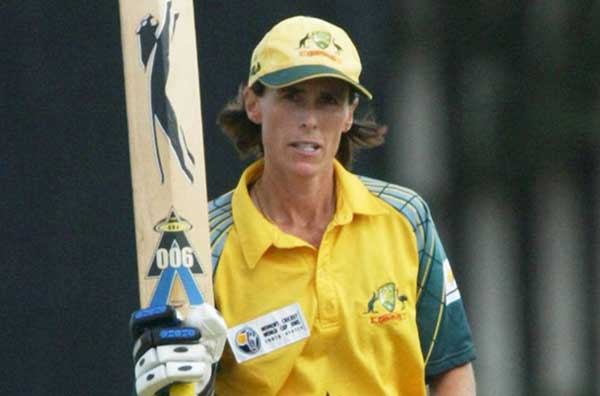
13 years before the master blaster batsman reached this landmark, there was a lady, who had already achieved this feat. On 16th December 1997, the then skipper of Australian women’s cricket team Belinda Clark had smashed an unbeaten 229 off just 155 balls against Denmark in the ICC Women’s Cricket World Cup match that was played at MIG Ground, Mumbai to propel Australia to a mammoth 412 for 3 against Denmark.
It was a brutal annihilation of an inexperienced attack, and Clark was just too hot to handle for the Denmark eves. The Australian team went on to win the match by a mammoth margin of 363 runs. Belinda Jane Clark, born on September 10, 1970 in New South Wales, played international cricket from 1991 to 2005. Clark led the Australian women’s team to two World Cup victories (1997 and 2005) and one final (2000) after taking charge in 1994. On 16 September 2005, Clark announced her retirement after playing in 118 one-day internationals and 15 Tests.
2. Amelia Kerr (ODI)
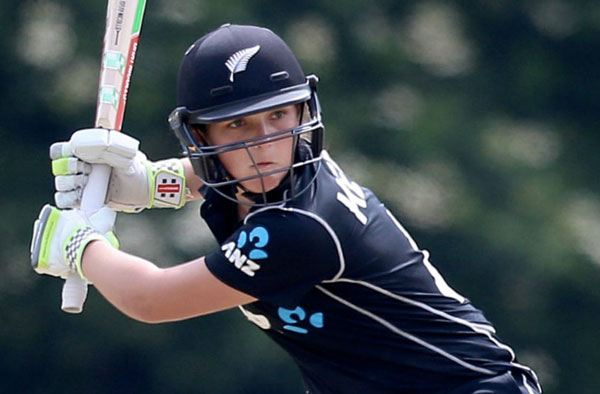
In June 2018, New Zealand’s Amelia Kerr entered the record books by scoring the highest individual score in women’s ODIs. She broke a 21-year-old record, as she went past Belinda Clark’s 229 that was scored in 1997 against Denmark in Mumbai. Kerr is only the second woman to score a double-century in ODIs. She scored her double-century in just 134 balls smashing 31 boundaries, the highest in women’s cricket and second-highest behind Rohit Sharma’s 33 during his 264. Kerr also became the joint third-youngest (17 years and 243 days) woman to score an ODI century when she was promoted to open the innings for the first time in her career. She also became the youngest ever to score a double-century across formats in international cricket.
3. Ellyse Perry (Test)
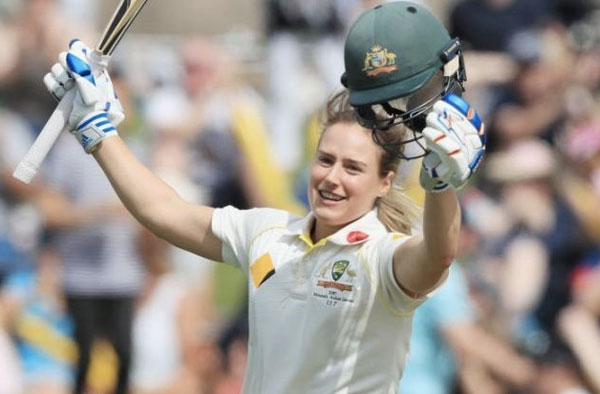
Australia’s star all-rounder Ellyse Perry became the fourth Australian to score a Test double century. Perry scored an unbeaten 213 in the first innings against England at North Sydney Oval, Sydney, in 2017. Her knock of 213 is also the highest ever test innings score by an Australian woman cricketer. Perry faced 374 balls in her 412-minute innings. She hit 26 boundaries and a six during her knock.
4. Kiran Baluch (Test)
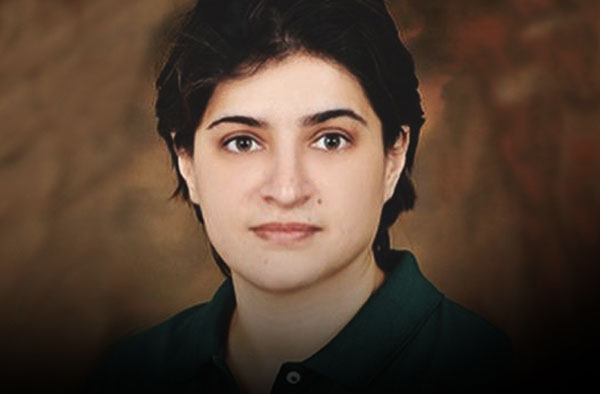
Pakistan’s Kiran Baluch scored 242 runs in the first innings against West Indies at National Stadium, Karachi, in 2004 to become the highest scorer in Women’s Test cricket surpassing India’s Mithali Raj (214). Her knock of 242 is also the highest ever test innings by an opening batswoman in test innings. Baluch faced as many as 488 balls and played a marathon innings lasting for 584 minutes (9 hours and 44 minutes). Baluch is the only Pakistani woman cricketer to join the double century club.
5. Mithali Raj (Test)
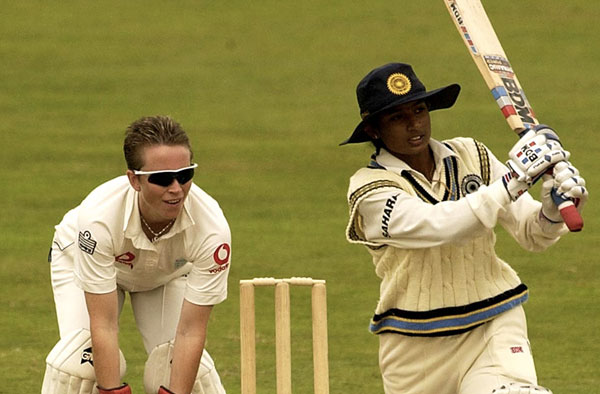
Mithali Raj, the captain of the Indian ODI team, holds the record for being the youngest player to score an ODI century when she got to that feat at 16 years and 205 days against Ireland. In her prolific career spanning over two decades, Raj has created as well as broken many records. She is the first Indian women to score a double century in Test cricket. On 17 August 2002, at the age of 19, in just her third Test, Mithali broke Karen Rolton’s (Australia) record of world’s highest individual Test score of 209 not out, scoring a new high of 214 against England in the second and final Test at County Ground, Taunton. The record has since been surpassed by Kiran Baluch of Pakistan who scored 242 against West Indies in March 2004.
6. Karen Rolton (Test)

Australia’s Karen Rolton became the third Australian to score a double century in test cricket when she made an unbeaten 209 in the second innings against England at Headingley Cricket Ground, Leeds, in 2001. This was the highest record held by an Australian till 2017 before her Aussie counterpart Ellyse Perry surpassed Rolton’s best with an unbeaten 213 against England. Karen’s knock of 209 not out came at a quick pace as she scored at a strike rate of 66.77, hitting 29 boundaries and a six. She faced 313 balls in her 361-minute innings.
7. Michelle Goszko (Test)
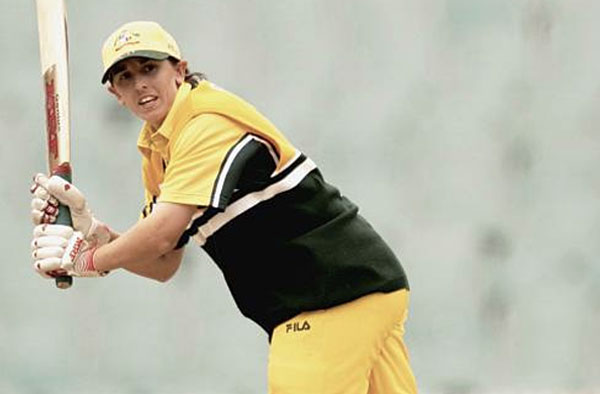
Australia’s Michelle Goszko was the second Australian to score a double century in Test cricket. Goszko piled up 204 runs in the second innings against England at Denis Compton Oval, Shenley, in 2001. She went past her Aussie teammate Joanne Broadbent who scored her double century in 1998. Goszko’s 345-ball innings had 24 boundaries and lasted for 395 minutes.
8. Joanne Broadbent (Test)
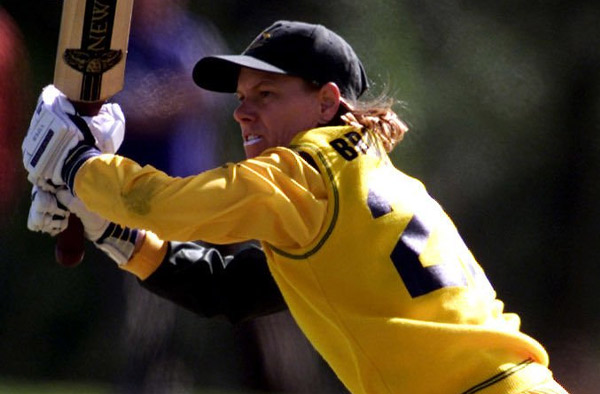
Australia’s Joanne Broadbent was the first Australian to score a double century in Test cricket. Broadbent achieved the feat in the second innings against England at Woodbridge Road, Guildford, in 1998. She was the second women cricketer to score a Test double century. Broadbent’s 200 came in 476 balls during which she smashed 25 boundaries. Her innings lasted for 517 minutes.
9. Kirsty Flavell (Test)
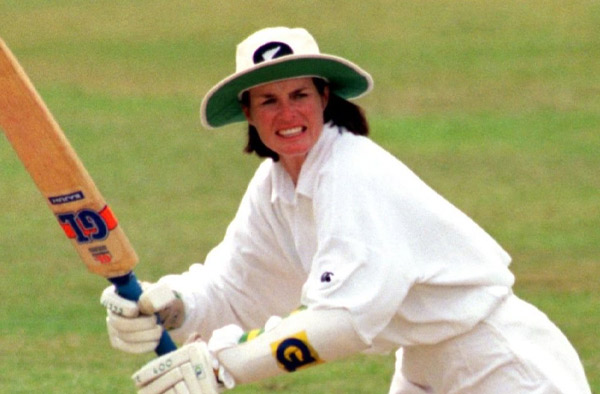
New Zealand’s Kirsty Flavell was the first woman to score a double century in Test cricket. Flavell scored a magnificent 204 in the second innings against England at North Marine Road, Scarborough, in 1996. Flavell had the record of being the only woman cricketer from New Zealand to score a double century in any form of international cricket before Amelia Kerr joined the club in 2018 when she scored an ODI double century. Kirsty’s scored 204 off 504 balls, hitting 24 boundaries in her 555-minute innings.
10. Tammy Beaumont (Test)
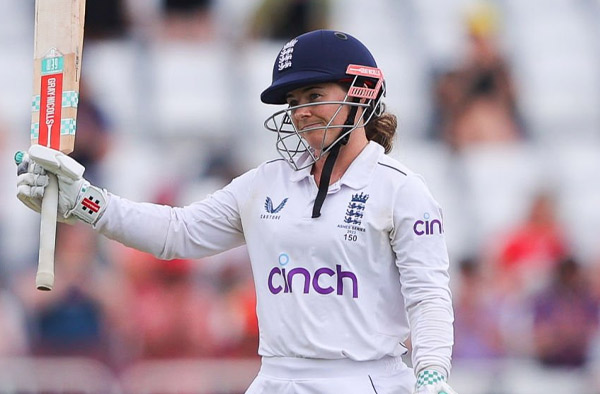
The 32-year-old wicket-keeper and veteran opening batter from England created history when she became the first player from England to score a double century in the red-ball format. There couldn’t have been a better time to do it than in a Women’s Ashes. The visitors Australia posted a massive total on the board (473) in the first innings after skipper Alyssa Healy won the toss and opted to bat first in a one-off Test match at Trent Bridge, Nottingham. England gave a solid response led by the opening batter Tammy Beaumont’s masterclass innings (208 runs off 331 balls), followed by twin half-centuries from skipper Heather Knight (57 off 91 balls) and Nat Sciver-Brunt (78 off 111 balls). Tammy Beaumont became the first English player to score a double century in the red-ball format. England posted 463 runs on the board taking the 1st innings deficit down to 10 runs. However, England lost the match by a massive 89-run margin.
11. Annabel Sutherland (Test)
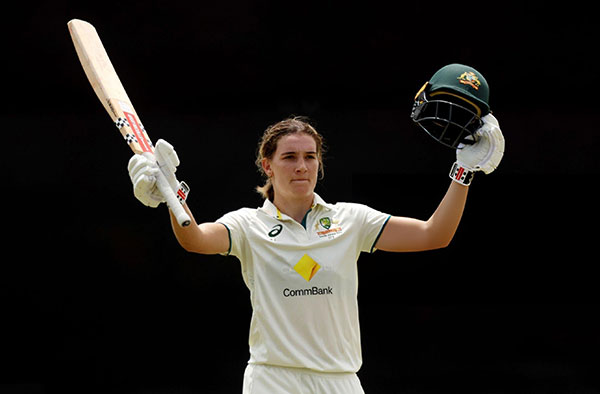
Australia are hosting South Africa for an all-format series. Australia clinched both the white-ball series. The historic one-off Test match at the W.A.C.A., Perth. It is their maiden face-off against each other in the red-ball format. Australian skipper Alyssa Healy won the toss and opted to field first. After being inserted to bat first, South Africa failed to counter the seaming conditions on offer as they were bundled out for their lowest score (76) in the red-ball format in the 32nd over of the innings.
The home side were rocked early as Masabata Klaas accounted for Australia’s top order Phoebe Litchfield, Ellyse Perry, and Tahlia McGrath to push the home side on the back foot. However, Beth Mooney and skipper Alyssa Healy led Australia’s recovery by taking them into a first-innings lead before Beth Mooney’s departure. Annabel Sutherland joined skipper Alyssa Healy and completed her well-deserved half-century before the end of play on Day 1. Annabel Sutherland continued with her positive approach alongside her overnight partner Ashleigh Gardner.
She scored her maiden double century, becoming the 9th player overall and the 5th Australian to score a double century (210 off 256 balls) in a Women’s Test match. She claimed the record for the fastest double century in a Women’s Test match as she managed to get it in just 248 balls, surpassing the previous best (Karen Rolton 306 balls Vs England 2001) by 58 balls. At the age of 22 years and 126 days, she also became the 2nd youngest player after Mithali Raj (19 years and 254 days) to score a double century in a Women’s Test match.
Shafali Verma (Test)
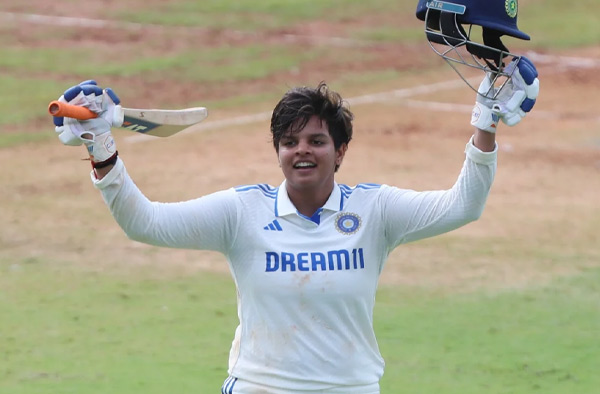
The 20-year-old Shafali Verma recorded her maiden Test century and quickly converted it into the fastest double century. After reaching her century in 113 balls, she accelerated her pace, scoring the fastest-ever Test 150 in 158 balls and then the fastest 200 overall in 194 balls. She hit a total of 23 boundaries and 8 maximums, maintaining a strike rate of 104.06.
Verma’s innings marked several milestones. She became the second youngest player to score a Test double-hundred and the second Indian to achieve this feat, following Mithali Raj. Verma’s score is just behind Raj’s in the highest score by an Indian in Test cricket. She also set the record for the most sixes in a Test innings, smashing 8 maximums, and became the first woman cricketer to score over 200 runs at more than a run-a-ball rate in a Test innings. Additionally, she became the youngest and joint-fastest Indian to reach 500 Test runs.
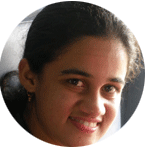
I am a former cricketer having represented Mumbai University at All India University level. I was a part of MCA probables for the U-19 and U-23 age group. I have been an avid cricket writer for the last five years. Currently I am pursuing my Ph.D from IIT Bombay.